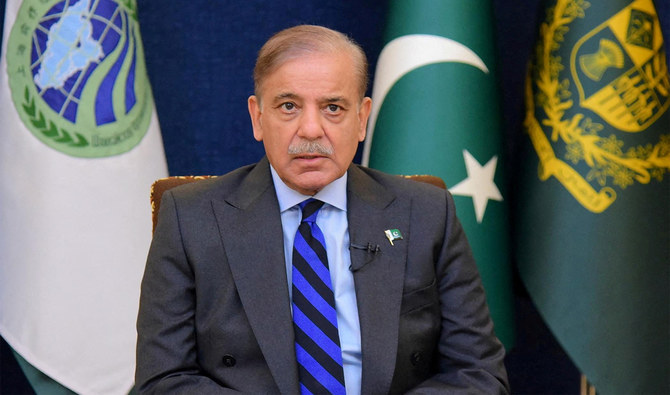Prime Minister Shehbaz Sharif said on Wednesday that he hoped the $3 billion short-term bailout for Pakistan would be given final approval by the International Monetary Fund board when it meets on July 12.
After eight months of negotiations, both sides signed a staff-level agreement on Friday, to avert an imminent default on sovereign debt. Finance Minister Ishaq Dar has said Pakistan will receive a first installment of $1.1 billion, but the IMF board’s approval is needed before funds can be disbursed.
“The agreement will go through, God willing,” Sharif said during a ceremony in Islamabad.
Sharif also thanked longtime allies China, Saudi Arabia, and United Arab Emirates for their support while his government was in negotiations with the IMF.
The allies had pledged bilateral financing or rolled over debts to help slow the drain on Pakistan’s foreign currency reserves, which by the end of last month were down to just a little below $4 billion, barely enough to pay for a month of controlled imports.
Dar said on Friday that the IMF deal would unlock bilateral lending from friendly governments and other multilateral lenders, and Pakistan’s reserves could rise up to $15 billion by the end of this month.
Pakistan is due to hold a general election by early October, though Sharif’s coalition government only came to power in April last year, after former prime minister Imran Khan lost a confidence vote in parliament.
The government desperately needed the IMF bailout to avoid the deepening balance of payments crisis, while dealing with an economy suffering record high inflation, running at 38 percent annually in May.
Sharif has had to take unpopular policy decisions demanded by the IMF since February. It has already announced an increase in the petroleum levy, and it will be raising electricity prices too.
The government has also committed to raise more than 385 billion rupee ($1.34 billion) in new taxation, and in recent days the central bank raised the policy interest rate 22 percent.



















